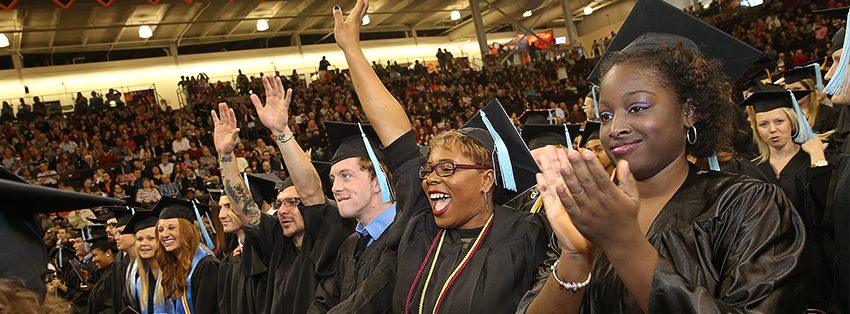MA Program

There are several degree options available to students pursuing the Master of Arts Degree in the School of Media & Communication. Students may seek a degree that prepares them for a PhD program and a career in academia, or they may pursue a degree that allows for professional development. This page provides information for students interested in the first option, while students seeking professional development should look to the Master of Arts specialization in Strategic Communication offered by the School which is an online MA program serving working people studying part-time (see separate web page). For those students seeking an MA that will prepare them for the rigors of PhD study and academia, and other communication and media research careers in the industry and non-profit organizations, the School of Media & Communication offers options that will provide a knowledge base, as well as tools for academic research and scholarship: generalist option, specialization in intercultural/international communication.
The generalist option allows for MA students to explore the different areas of emphasis within the School of Media & Communication, and build a knowledge base that will prepare them for further academic studies. During their time in the program, MA students have the freedom to take coursework across these three areas of emphasis (media audiences and processes, interpersonal communication or critical media & rhetoric) and some professionally oriented courses up to four classes at 5000 level. If they so desire, they may concentrate their coursework in one area, or they may take courses across multiple areas. There are advantages and disadvantages to each approach, and MA students pursuing the generalist option should consult with an advisor about how they should proceed.
This specialization is closely aligned with the School emphasis in Critical Media Studies & Rhetoric. Students take coursework that provides theoretical and conceptual grounding concerning topics related to international and intercultural communication. In addition, students take methods courses that prepare them for the rigors of a thesis or research project, should they choose either of those plans to complete the degree.
Each of the options above entail the following core courses:
- MC 6000: Introduction to Media & Communication
- MC 6300: Social Scientific Research Methods or MC 6400: Humanistic Research Methods
The generalist option also requires that students take 6 additional courses, of which 2 must be at the 6000/7000 level and are recommended to follow one of the emphasis areas in the graduate program. In addition, MA students must have 3 credit hours of thesis, research project, or comprehensive examination to complete the degree.
- Students who are in the Intercultural/International Specialization must take the following courses in order to complete the degree:
- MC 5080: Intercultural Communication
- MC 5090: International Communication
- Choose two of the following:
- MC 5040: Communication & Conflict
- MC 5670: Gender, Media & Culture
- MC 5750: Perspectives on International Media
- MC 6570: Intercultural Communication
- MC 7610: Race & Communication
- MC 7630: Communication for Social Change
- MC 7650: International Media
- Two electives at the 6000/7000 level
- After coursework, students in each of the three options can complete the degree in one of three ways: thesis, research project, and comprehensive exam. Students who opt to write the MA thesis should anticipate completing the degree in a full two-year span of time (5-6 semesters) Those who opt for the research project or comprehensive exam may complete the degree program in 4 semesters.
- Full-Time Master Degree Milestone
Milestones | Credit Hours (Minimum) | |
Semester 1 |
|
|
Semester 2 |
|
|
Semester 3 |
| |
Semester 4 |
|
|
Semester 5 |
|
|
There are graduate assistantships (GA) available to MA students in the School of Media & Communication. Incoming MA students who are awarded an assistantship are typically granted one year of funding, with the possibility to apply for a second. The continuation of an assistantship from year one to year two is based on available funding, as well as two primary criteria: whether they are meeting the requirements of their assistantship, and whether they are making significant progress toward their degree.
The graduate assistantships typically entail working with faculty in classroom settings, or assisting the faculty in research or other duties. The graduate assistantships come with a scholarship and stipend package. The scholarships cover the instructional fees and non-resident fees of MA students. The stipend provides income for the students as they work in their GA duties and study throughout the year. As the cost of living in the Toledo metropolitan area has trended 15% lower than the national average, our stipends and overall assistantship package proves to be quite competitive compared to other institutions. All of our regular assistantships require that students work either 10 (half) or 20 hours (full)/week in the Fall and Spring at a particular assignment.
Updated: 02/27/2025 11:05AM
